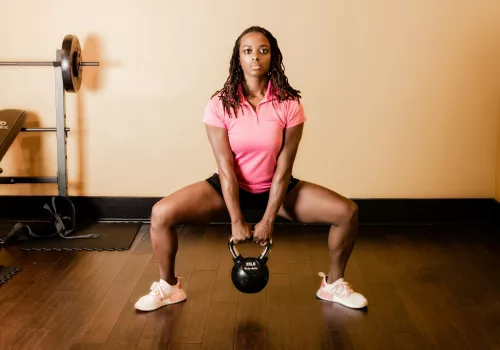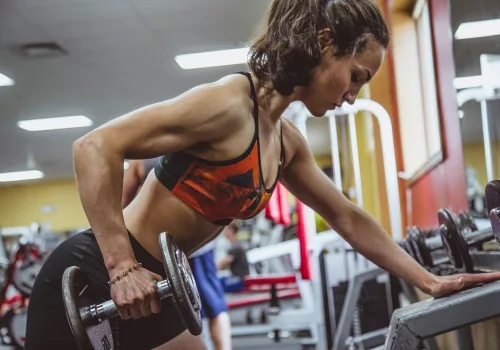Teenage years are a critical period for growth and development, and it’s during this time that the body undergoes significant changes, including increased muscle mass and strength. For teenagers, maintaining a balanced diet rich in key nutrients is essential for promoting muscle growth, aiding recovery, and providing energy for physical activity. Whether teenagers are athletes, fitness enthusiasts, or simply looking to build muscle as part of their overall growth, consuming the right foods can make a significant difference in their muscle development.
We’ll take a look into 15 foods and nutrients that are essential for muscle growth in teenagers. It provides insights into the science behind each food, why it matters for muscle development, and how teenagers can incorporate these foods into their diets.
1. Lean Meats (Chicken, Turkey, Lean Beef)
Why They Promote Muscle Growth:
Lean meats such as chicken, turkey, and lean beef are rich sources of high-quality protein, which provides the building blocks (amino acids) needed to repair and build muscle tissues. Protein is essential for muscle recovery and growth after exercise, especially during adolescence when muscle development is naturally rapid. Additionally, lean meats provide key minerals like iron and zinc, which are crucial for supporting energy metabolism and immune function, both of which indirectly affect muscle growth and recovery.
Additional Benefits:
- Iron: Helps transport oxygen to muscles, improving endurance and strength.
- Zinc: Supports immune function and helps the body recover from physical exertion.
- B Vitamins: Assist in energy metabolism, helping convert food into usable energy for workouts.
How to Include Them:
- Grill or bake chicken or turkey and pair them with whole grains like brown rice for a balanced meal.
- Lean beef can be used in stir-fries, tacos, or pasta dishes for added protein and nutrients.
2. Eggs
Why They Promote Muscle Growth:
Eggs are a nutritional powerhouse, providing a rich source of complete protein, meaning they contain all nine essential amino acids necessary for muscle repair and growth. The high biological value of egg protein makes it ideal for teenagers looking to build muscle, as it is easily absorbed and utilized by the body. Moreover, eggs contain important vitamins such as vitamin D, which plays a role in muscle function, and B vitamins (like B12), which help the body convert food into energy.
Additional Benefits:
- Leucine, a key amino acid in eggs, is particularly important for stimulating muscle protein synthesis.
- Eggs contain healthy fats, which support hormone production, including testosterone, a hormone critical for muscle growth in males during adolescence.
How to Include Them:
- Scrambled eggs with vegetables for breakfast.
- Hard-boiled eggs as a protein-packed snack or part of a post-workout meal.
- Omelets or frittatas with lean meats and veggies for added protein and nutrients.
3. Greek Yogurt
Why It Promotes Muscle Growth:
Greek yogurt is an excellent source of both whey protein and casein protein, making it particularly effective for muscle recovery and growth. Whey protein is fast-digesting, which means it is quickly absorbed by the muscles, making it ideal for post-workout recovery. Casein protein is slower to digest, providing a steady stream of amino acids to muscles over several hours, helping with long-term muscle repair and growth. Greek yogurt is also rich in calcium, which supports muscle contraction and bone health—especially important for growing teenagers.
Additional Benefits:
- Greek yogurt contains probiotics, which support digestive health and may improve nutrient absorption.
- Vitamin B12, found in Greek yogurt, aids in energy production, critical for maintaining energy levels during physical activity.
How to Include It:
- Greek yogurt with fresh berries, nuts, and honey as a nutrient-dense snack.
- Use Greek yogurt as the base for smoothies, or mix it with protein powder for a recovery shake.
- Incorporate Greek yogurt into salad dressings or dips for added protein.
4. Quinoa
Why It Promotes Muscle Growth:
Quinoa is a plant-based complete protein, meaning it contains all nine essential amino acids, which are necessary for muscle repair and growth. This makes it an excellent source of protein for vegetarian or vegan teenagers who want to build muscle. In addition to its protein content, quinoa is a rich source of complex carbohydrates, providing sustained energy for workouts and physical activity. It also contains fiber, which supports digestive health, and magnesium, which helps with muscle function and recovery.
Additional Benefits:
- Iron in quinoa supports the production of hemoglobin, which carries oxygen to muscles, improving endurance and performance.
- Manganese and phosphorus in quinoa contribute to bone health and muscle repair.
How to Include It:
- Use quinoa as a base for salads, mixed with vegetables, lean meats, or beans.
- Serve quinoa as a side dish in place of rice or pasta.
- Add cooked quinoa to soups, stews, or casseroles for added texture and protein.
5. Salmon
Why It Promotes Muscle Growth:
Salmon is a rich source of omega-3 fatty acids, which have anti-inflammatory properties that help reduce muscle soreness and promote recovery after exercise. In addition to its high-quality protein content, salmon provides vitamin D and B vitamins, both of which are essential for muscle health and overall energy metabolism. Omega-3s also support cardiovascular health, which is important for endurance and stamina during physical activities.
Additional Benefits:
- EPA and DHA (types of omega-3s) in salmon help reduce exercise-induced muscle damage and support heart health.
- The healthy fats in salmon also support hormonal balance, which can enhance muscle growth and recovery in teenagers.
How to Include It:
- Grill or bake salmon and serve it with a side of vegetables and whole grains.
- Use salmon in salads, wraps, or sandwiches for a high-protein lunch.
- Add smoked salmon to eggs or bagels for a quick, nutrient-rich breakfast.
6. Nuts and Seeds
Why They Promote Muscle Growth:
Nuts and seeds, such as almonds, walnuts, chia seeds, and flaxseeds, are packed with healthy fats, protein, and fiber. They are excellent sources of magnesium, which is essential for muscle contraction and recovery, as well as vitamin E, which acts as an antioxidant to protect muscles from oxidative stress. Nuts and seeds also provide a good source of omega-3 fatty acids, especially from seeds like chia and flax, which help reduce inflammation and promote recovery after exercise.
Additional Benefits:
- The combination of protein and healthy fats in nuts and seeds provides sustained energy for long workouts.
- Magnesium in nuts and seeds supports nerve function and muscle relaxation, helping reduce cramps and soreness.
How to Include Them:
- Snack on a handful of mixed nuts between meals or before a workout.
- Add chia seeds or flaxseeds to smoothies, oatmeal, or yogurt for added fiber and omega-3s.
- Spread almond or peanut butter on whole-grain toast or use as a dip for apple slices.
7. Cottage Cheese
Why It Promotes Muscle Growth:
Cottage cheese is a rich source of casein protein, which is slowly digested and provides a steady supply of amino acids to the muscles over several hours. This makes cottage cheese an excellent choice for nighttime snacking, as it helps with muscle repair while the body is at rest. It also contains calcium, which is essential for muscle contractions and bone health, both of which are important for active teenagers. The combination of protein and calcium makes cottage cheese a powerful food for promoting muscle growth.
Additional Benefits:
- Cottage cheese is low in fat and high in protein, making it ideal for muscle building without adding excessive calories.
- Probiotics in some types of cottage cheese may support gut health, aiding digestion and nutrient absorption.
How to Include It:
- Top cottage cheese with fruits like berries, bananas, or peaches for a nutritious snack.
- Use cottage cheese as a spread on whole-grain crackers or toast.
- Blend cottage cheese into smoothies for a protein boost.
8. Milk
Why It Promotes Muscle Growth:
Milk is one of the most accessible and nutrient-dense foods for muscle growth. It contains both whey protein and casein protein, making it a great option for both fast and slow digestion of amino acids. Whey protein is quickly absorbed by the muscles, while casein provides a prolonged release of amino acids for muscle repair. Additionally, milk is rich in calcium, which supports strong bones and muscle function, and vitamin D, which aids in calcium absorption and muscle health.
Additional Benefits:
- Milk also provides potassium, which helps prevent muscle cramps and supports hydration.
- B vitamins in milk help convert food into energy, crucial for active teenagers.
How to Include It:
- Drink a glass of milk after workouts to support muscle recovery.
- Use milk as a base for smoothies with added fruit, protein powder, or oats.
- Add milk to cereal, oatmeal, or protein shakes for an extra boost of protein and nutrients.
9. Sweet Potatoes
Why They Promote Muscle Growth:
Sweet potatoes are an excellent source of complex carbohydrates, which provide sustained energy for workouts and recovery. They are rich in beta-carotene, an antioxidant that supports the immune system and helps reduce inflammation, which is important for muscle recovery. Sweet potatoes also provide potassium, which aids in muscle function and helps prevent muscle cramps during physical activity.
Additional Benefits:
- Vitamin C in sweet potatoes helps repair tissues and supports collagen production, which is important for muscle recovery and joint health.
- Fiber in sweet potatoes supports digestive health and ensures steady energy release during physical activities.
How to Include Them:
- Baked or roasted sweet potatoes make a great side dish with lean meats or fish.
- Mashed sweet potatoes can be served with a sprinkle of cinnamon for a healthy carb-rich snack.
- Use sweet potatoes in salads, grain bowls, or as a base for tacos.
10. Spinach
Why It Promotes Muscle Growth:
Spinach is rich in iron, which is necessary for producing hemoglobin and transporting oxygen to muscles during physical activity. This makes it an excellent food for improving endurance and muscle performance. Spinach also contains magnesium, which plays a role in muscle contraction and relaxation, and nitrates, which have been shown to improve muscle efficiency and strength.
Additional Benefits:
- Vitamin K in spinach supports bone health, which is essential for growing teenagers engaged in physical activity.
- Folate in spinach helps in the production and repair of DNA, promoting cell growth and muscle repair.
How to Include It:
- Add fresh spinach to smoothies for a nutrient boost without altering the flavor.
- Include spinach in salads, sandwiches, or omelets.
- Use spinach as a base for grain bowls or pasta dishes with lean protein.
11. Oats
Why They Promote Muscle Growth:
Oats are an excellent source of complex carbohydrates, which provide a steady release of energy for long workouts. They are also a great source of fiber, which helps with digestion and keeps energy levels stable throughout the day. Oats contain small amounts of protein, which helps contribute to muscle repair and growth, making them an ideal food for teenagers focused on building muscle.
Additional Benefits:
- Oats contain beta-glucan, a type of fiber that supports heart health and overall metabolism, improving endurance during physical activity.
- B vitamins in oats help convert carbohydrates into energy, making them essential for sustained physical performance.
How to Include Them:
- Overnight oats with toppings like nuts, seeds, and fruit make a great pre-workout meal.
- Cook oatmeal and add a spoonful of protein powder, chia seeds, or nut butter for added protein.
- Use oats in homemade energy bars or protein balls for a quick snack.
12. Beans and Legumes
Why They Promote Muscle Growth:
Beans and legumes, such as lentils, black beans, and chickpeas, are rich in plant-based protein and provide essential amino acids that contribute to muscle repair and growth. They are also a great source of fiber, which helps regulate digestion and ensures a steady release of energy. Additionally, beans and legumes are high in iron and magnesium, which support oxygen transport to muscles and aid in muscle recovery.
Additional Benefits:
- Potassium in beans helps regulate fluid balance and prevents muscle cramps during intense workouts.
- Antioxidants in legumes help reduce inflammation and protect muscles from oxidative stress.
How to Include Them:
- Add beans to salads, soups, or grain bowls for a protein-rich meal.
- Use lentils in stews, curries, or as a meat substitute in tacos or burgers.
- Make hummus from chickpeas for a healthy snack with whole-grain crackers or vegetables.
13. Brown Rice
Why It Promotes Muscle Growth:
Brown rice is a whole grain that provides complex carbohydrates, essential for maintaining energy levels during workouts and recovery. Unlike refined grains, brown rice contains more fiber and B vitamins, which help with energy production and muscle function. Additionally, brown rice contains small amounts of protein, making it a well-rounded food for muscle growth.
Additional Benefits:
- Brown rice has a lower glycemic index than white rice, meaning it provides sustained energy without causing blood sugar spikes.
- It also contains manganese, which is important for protein metabolism and muscle recovery.
How to Include It:
- Serve brown rice as a side dish with lean proteins like chicken, turkey, or fish.
- Use brown rice as a base for stir-fries, grain bowls, or salads.
- Add brown rice to soups or stews for added fiber and carbohydrates.
14. Bananas
Why They Promote Muscle Growth:
Bananas are rich in potassium, which is essential for muscle contractions and preventing muscle cramps. They also provide a quick source of simple carbohydrates, making them an ideal pre- or post-workout snack to replenish glycogen stores. Bananas are easy to digest and provide an energy boost, making them perfect for fueling physical activity.
Additional Benefits:
- Vitamin B6 in bananas helps with protein metabolism and supports muscle repair.
- Bananas are hydrating and can help restore electrolyte balance after exercise.
How to Include Them:
- Eat a banana before or after a workout for quick energy.
- Blend bananas into smoothies with Greek yogurt, oats, and nut butter for a muscle-building shake.
- Add sliced bananas to oatmeal, cereal, or yogurt for extra flavor and nutrients.
15. Whey Protein
Why It Promotes Muscle Growth:
Whey protein is one of the most popular and effective sources of protein for muscle building. It contains all essential amino acids, particularly leucine, which is critical for stimulating muscle protein synthesis. Whey protein is fast-digesting, making it ideal for post-workout recovery as it quickly delivers amino acids to muscles that need repair and growth. For teenagers who have higher protein needs due to rapid growth and physical activity, whey protein can be a convenient way to meet those requirements.
Additional Benefits:
- Whey protein is low in fat and carbohydrates, making it an efficient source of pure protein.
- It’s easy to incorporate into shakes, smoothies, or snacks for a protein boost.
How to Include It:
- Add whey protein powder to post-workout smoothies with fruits and milk.
- Mix whey protein with water or milk for a quick recovery shake.
- Use whey protein powder in homemade protein bars or energy balls.
Conclusion
For teenagers aiming to build muscle, maintaining a diet rich in high-quality protein, complex carbohydrates, healthy fats, and essential vitamins and minerals is crucial. Foods like lean meats, eggs, salmon, and beans provide the protein necessary for muscle repair and growth, while complex carbohydrates like sweet potatoes, oats, and quinoa provide the energy needed for workouts and recovery. Nutrient-dense foods such as spinach, nuts, and bananas offer vital micronutrients that support muscle function, recovery, and overall health.
Incorporating these 15 foods into a teenager’s diet, along with regular physical activity, can significantly enhance muscle growth and strength, setting the foundation for lifelong health and fitness.






